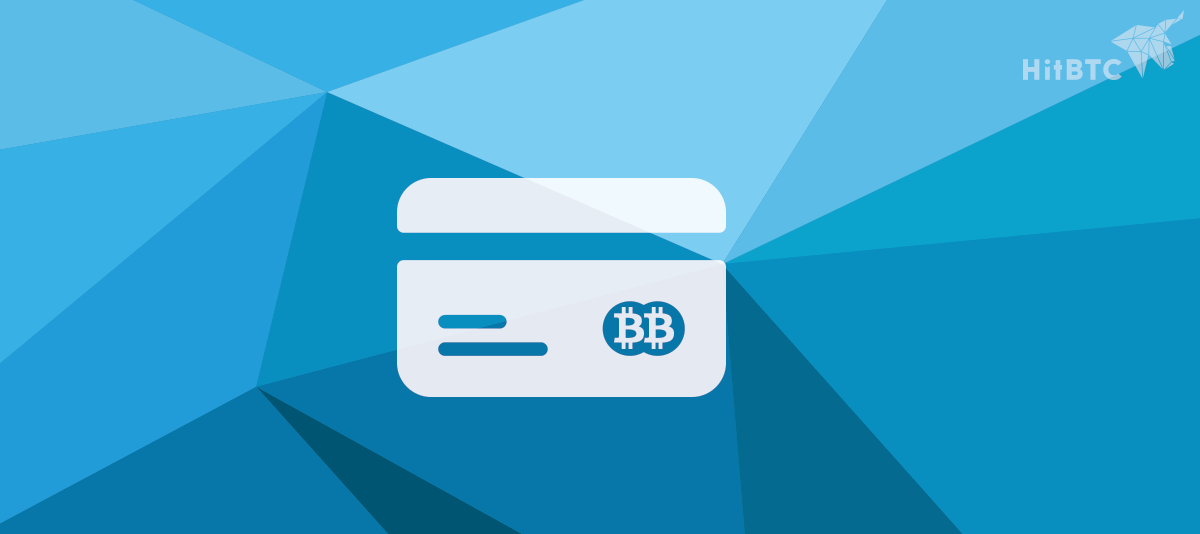Bitcoin Debit Cards - a New Personal Banking Solution?

As the use of Bitcoin and other cryptocurrencies becomes more and more popular, we see an increase in products available. There are so many crypto apps available that serve many different purposes. From smart contracts to securing a country’s health records to playing little addictive games – blockchain gives us so many wonderful new opportunities and features. It is said to revolutionize the banking system. Let’s have a look at some particular products that might help you send the banks packing. I am specifically talking about Bitcoin debit cards.
Bitcoin Cards
There are quite a few different providers out there that offer Bitcoin debit cards. Firstly, what is a Bitcoin debit card? Basically like your bank card, however it is not linked to your bank account but to your wallet or in some cases you need to top the card up as you go. You can also get prepaid cards. Useful if you have a lot of coins lying around or if you earn an income in Bitcoin for example. Instead of having to convert them to your preferred currency you can just spend them as you would with a normal card. Most cards available are Visa and work just as any bank card would do in most of POS’ and also online. You can get both virtual and plastic ones. And it is relatively easy to get them.
Are Bitcoin Cards Any Good?
As these products are still I would say in the testing phase there are still some issues. Currently from my user experience the problems with the plastic Bitcoin debit cards are:
- Cost
- Delivery times
- Fees
If you want a Bitcoin card you need to pay on average $20 for it. As it’s not gone mainstream yet it is considered somewhat a luxury good. So if you want one you have to be prepared to pay for it. Even more if you need it fast – add about $50 or more to the price. Living in Europe I am used to getting a card for free of course. But I understand that the Bitcoin card providers can in no way compete with banks. Hence this product is not ready to go mainstream just yet.
Secondly, the delivery times are not the greatest. I have recently tried and tested many different Bitcoin debit cards. Two of them didn’t arrive at all. One company had some sort of issues with the card production, so that too didn’t actually get sent to me in the time space of one month. I specifically paid for the express delivery that promised to produce and deliver the card to me in 7-10 days. A month later I had had enough, cancelled my card and asked for a refund. Fourth time lucky I received a Bitcoin debit card from a company called Xapo in 8 days after splashing out 68€ for it.
On top of a fee for getting a card there are various others you need to keep in mind. Some Bitcoin debit card providers also charge an annual card fee. On top of this there are fees for cash withdrawals, a foreign exchange fee, PIN change fee, card replacement fee etc. Granted, some of these fees would also be charged by some of the high street banks. On top of these fees the exchange rates for Bitcoin normally aren’t great. Hence I would not recommend using a Bitcoin debit card provider for just buying or selling Bitcoin.
Not a glowing review so far, I know. Let me now go through the things and features I really like about some of the Bitcoin debit cards on the market:
- Virtual Bitcoin cards
- Very fast deposits
- Sending funds to friends
So far my favourite user experience has been with the E-coin virtual card. It only cost me a fiver and it worked pretty much instantly. I bought a holiday in Bitcoin and had no issues whatsoever. No waiting around for the card to be produced or sent out, no tedious KYC procedure. Didn’t even have to give them my name. There’s no need to send any kinds of documents if not topping the virtual card up with more than 2500€.
The card is loaded up with your Bitcoin rather fast. Depending on which provider you use. But on average it will be ready to use in about 30 mins. There are slight differences between different providers. With an E-coin card you need to first load your E-coin wallet up with Bitcoin and then load it onto the card. It then locks the amount of Bitcoin in your selected currency. This way the change of price won’t affect the amount of fiat on your card. A feature I rather like. Some others do it differently. Xapo for example links directly to your Xapo wallet and there’s no need to load the card up separately. Whatever is on your card, that amount will be on your Xapo card. On one hand this is convenient. On the other you will be affected if the Bitcoin price drops. And as we know it is very volatile.
It is also a great alternative to bank transfers. Let’s say you want to send some cash to a friend. If you’re in the same country, transfers normally take a few hours. In the EU the transfer cut off time for SEPA payments is at 16.30. If done after this time your payment will get to the recipient the next following day. Around midday. Instead you could send a friend some Bitcoin, that takes around 30 minutes as mentioned above. That of course is only possible if they too have a Bitcoin card. If they do though, say goodbye to long transfer times across border and you will definitely save a lot on bank transfer fees.
A FinTech revolution?
I was conversing to a friend of mine on this topic recently. He likes anything to do with Bitcoin as he’s quite anti-establishment. Goodbye to banks! Well yes and no. A company that issues Bitcoin debit cards is still a business, and its main goal is to make money. So in that sense the question is – how different is it from a bank really? If the aim with Bitcoin was to save money, in the case of using a Bitcoin card compared to a normal bank card you’d definitely not be saving any money. Quite the opposite indeed. But these things will change once critical mass is reached. Once there are enough users there will be more competition, driving the price down with it and probably giving the user a better experience too. So if you are considering on getting a Bitcoin debit card to save money – this isn’t for you. If however you want to help this field develop more, using Bitcoin and blockchain based products will help a long way. Or if you want to easily and frequently send friends and family cash overseas, this might be an option to consider. If you have an income in Bitcoin, it’s basically a no brainer.
Get your Bitcoins to fund your new Bitcoin debit card!
